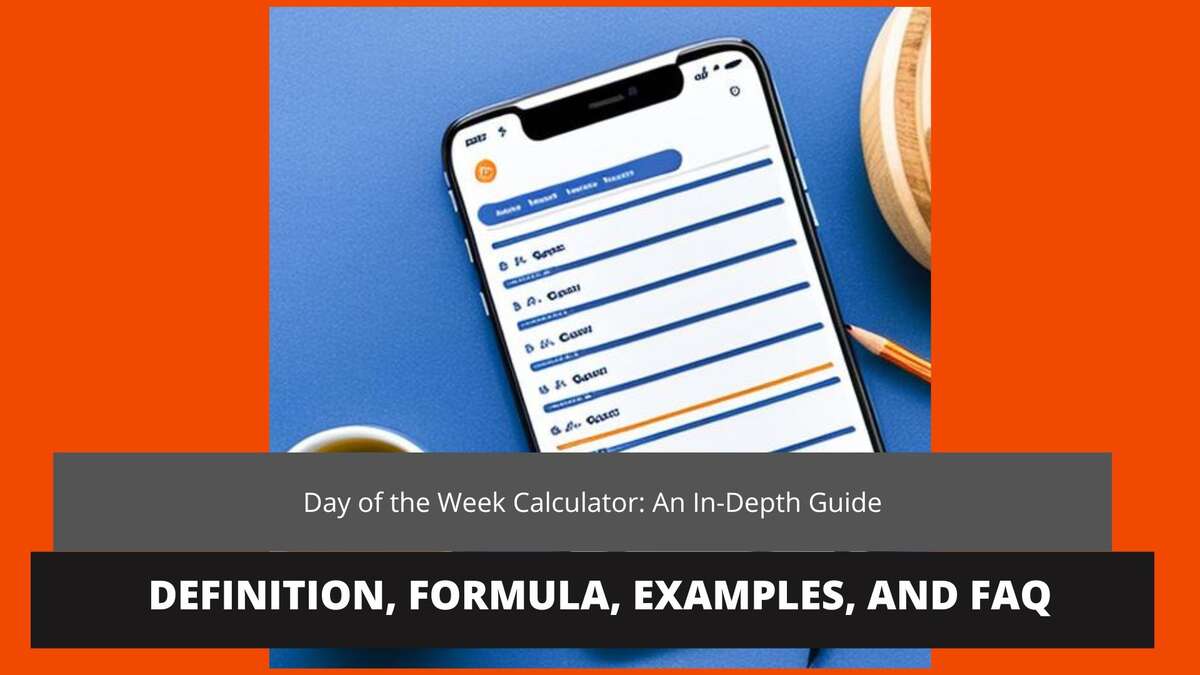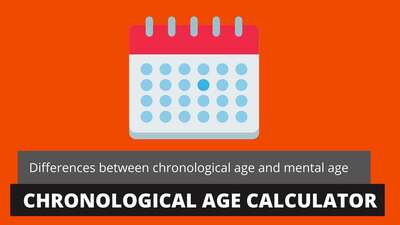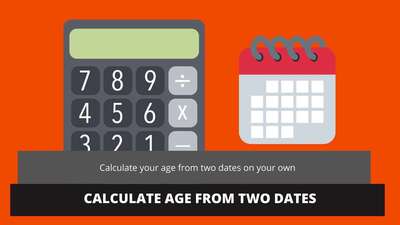Day of the Week Calculator: An In-Depth Guide

- Definition: What is a Day of the Week Calculator?
- Formula: Breaking Down the Zeller's Congruence
- Examples: Zeller's Congruence in Action
- Explanation: Understanding the Zeller's Congruence Formula
- Question and Answer FAQ
- Can I use the Zeller's Congruence formula for dates before the Gregorian calendar?
- Are there alternative methods for calculating the day of the week?
- Conclusion: Mastering the Day of the Week Calculator
- What day of the week is it
- Day of week calculator
- Day of the week calculation
- calculate the day of the week
- What day of the week is
- Date calculator day of the week
- How to calculate the day of the week
Have you ever wondered how to determine the day of the week for any given date without the help of a calendar or a digital tool? In this comprehensive guide, we'll dive into the Day of the Week Calculator and explore its definition, formula, examples, explanation, frequently asked questions, and wrap up with a conclusion.
Definition: What is a Day of the Week Calculator?
A Day of the Week Calculator is a method, formula, or algorithm used to determine the day of the week for any given date. The calculator can be applied to both historical and future dates. The most popular method for calculating the day of the week is the Zeller's Congruence formula, which we'll delve into later in this guide.
Formula: Breaking Down the Zeller's Congruence
The Zeller's Congruence formula is a widely recognized algorithm for calculating the day of the week. It was developed by Christian Zeller in 1887 and later refined by John Horton Conway. The formula is as follows:
h = (q + [13(m + 1) / 5] + K + [K / 4] + [J / 4] - 2J) mod 7
Where:
- h is the day of the week (0 = Saturday, 1 = Sunday, 2 = Monday, ..., 6 = Friday)
- q is the day of the month
- m is the month (3 = March, 4 = April, ..., 14 = February)
- J is the zero-based century (i.e., year / 100)
- K is the year within the century (i.e., year % 100)
Note that January and February are counted as months 13 and 14 of the previous year, so you need to subtract 1 from the year for those months.
Examples: Zeller's Congruence in Action
Let's calculate the day of the week for September 15, 2021, using the Zeller's Congruence formula:
- q = 15
- m = 9 (September)
- year = 2021, so J = 20 and K = 21
Plugging the values into the formula, we get:
h = (15 + [(13 * 10) / 5] + 21 + [21 / 4] + [20 / 4] - 2 * 20) mod 7
After calculating the values, we find that h = 3. According to the Zeller's Congruence, 3 corresponds to Wednesday. So, September 15, 2021, was a Wednesday.
Explanation: Understanding the Zeller's Congruence Formula
The Zeller's Congruence formula may seem complex at first, but it's based on the principle that the day of the week advances predictably as time passes. It takes into account the regular cycles of days, months, years, and leap years. The formula combines these factors and calculates the day of the week by dividing and rounding numbers, eventually arriving at the correct result through modular arithmetic.
Question and Answer FAQ
Can I use the Zeller's Congruence formula for dates before the Gregorian calendar?
The Zeller's Congruence formula is designed for the Gregorian calendar, which started on October 15, 1582. For dates prior to this, the formula may produce inaccurate results as the Julian calendar has different rules for leap years.
Are there alternative methods for calculating the day of the week?
Yes, there are several alternative methods for calculating the day of the week, such as the Doomsday Algorithm, the Conway's method, and Tomohiko Sakamoto's Algorithm. Each method has its advantages and disadvantages, but all can provide accurate results when applied correctly.
Conclusion: Mastering the Day of the Week Calculator
In this guide, we've explored the concept of the Day of the Week Calculator, including its definition, formula, examples, and explanation. By understanding and mastering the Zeller's Congruence formula, you can easily determine the day of the week for any date in the Gregorian calendar.
With practice, you'll become more proficient in using the formula, and calculating the day of the week will become second nature. Whether you're curious about historical events, planning future appointments, or simply looking to impress your friends with your mental calendar skills, the Day of the Week Calculator is a valuable tool to have in your arsenal.
What day of the week is it
Knowing the current day of the week might seem like a simple task, but our busy lives can sometimes leave us feeling disoriented. If you're wondering, "What day of the week is it?" you can easily find out by checking your phone, computer, or other digital devices that display the date. Alternatively, if you've mastered the Day of the Week Calculator, like Zeller's Congruence, you can determine the day of the week for today's date using the formula. This not only allows you to stay informed about the present day but also provides an opportunity to practice your mental calendar skills.
Day of week calculator
A Day of the Week Calculator is a tool that allows you to determine the day of the week for any given date. You can find various online calculators or use mathematical algorithms, such as Zeller's Congruence, to calculate the day of the week manually. Here's a quick refresher on the Zeller's Congruence formula:
h = (q + [13(m + 1) / 5] + K + [K / 4] + [J / 4] - 2J) mod 7
Where:
- h is the day of the week (0 = Saturday, 1 = Sunday, 2 = Monday, ..., 6 = Friday)
- q is the day of the month
- m is the month (3 = March, 4 = April, ..., 14 = February)
- J is the zero-based century (i.e., year / 100)
- K is the year within the century (i.e., year % 100)
Remember that January and February are counted as months 13 and 14 of the previous year, so you need to subtract 1 from the year for those months.
By inputting the appropriate values for the day, month, and year, you can calculate the day of the week using Zeller's Congruence or another algorithm of your choice.
Day of the week calculation
Calculating the day of the week can be achieved using various algorithms, with Zeller's Congruence being one of the most popular methods. Here's a step-by-step guide to using Zeller's Congruence for day of the week calculation:
h = (q + [13(m + 1) / 5] + K + [K / 4] + [J / 4] - 2J) mod 7
Where:
- h is the day of the week (0 = Saturday, 1 = Sunday, 2 = Monday, ..., 6 = Friday)
- q is the day of the month
- m is the month (3 = March, 4 = April, ..., 14 = February)
- J is the zero-based century (i.e., year / 100)
- K is the year within the century (i.e., year % 100)
Follow these steps to perform the calculation:
- Adjust the month and year values if necessary: January and February are considered months 13 and 14 of the previous year, so subtract 1 from the year for those months and add 12 to the month number.
- Calculate J by dividing the adjusted year by 100.
- Calculate K by finding the remainder of the adjusted year when divided by 100.
- Plug the values for q (day of the month), m (adjusted month), K (year within the century), and J (zero-based century) into the formula.
- Perform the calculations within the parentheses and brackets first, then the additions and subtractions, and finally the modulus operation.
- The result, h, will be a number between 0 and 6, representing the day of the week (0 = Saturday, 1 = Sunday, 2 = Monday, ..., 6 = Friday).
By following these steps, you can calculate the day of the week for any given date using the Zeller's Congruence formula.
calculate the day of the week
To calculate the day of the week for a specific date, we can use the Zeller's Congruence formula. Please provide the date (day, month, and year) for which you want to calculate the day of the week. Once you provide the date, I'll guide you through the calculation process using the Zeller's Congruence formula.
What day of the week is
To calculate the day of the week for a specific date, please provide the date (day, month, and year) for which you want to find the day of the week. Once you provide the date, I'll guide you through the calculation process using an algorithm such as Zeller's Congruence.
Date calculator day of the week
A date calculator, like the Zeller's Congruence, can help you determine the day of the week for any given date. Below is the formula for Zeller's Congruence:
h = (q + [13(m + 1) / 5] + K + [K / 4] + [J / 4] - 2J) mod 7
Where:
- h is the day of the week (0 = Saturday, 1 = Sunday, 2 = Monday, ..., 6 = Friday)
- q is the day of the month
- m is the month (3 = March, 4 = April, ..., 14 = February)
- J is the zero-based century (i.e., year / 100)
- K is the year within the century (i.e., year % 100)
Please provide the date (day, month, and year) for which you want to calculate the day of the week. Once you provide the date, I'll guide you through the calculation process using Zeller's Congruence.
How to calculate the day of the week
Calculating the day of the week can be done using various algorithms, with Zeller's Congruence being a popular method. Here's a step-by-step guide to using Zeller's Congruence for day of the week calculation:
- Use the Zeller's Congruence formula:
Where:
- h is the day of the week (0 = Saturday, 1 = Sunday, 2 = Monday, ..., 6 = Friday)
- q is the day of the month
- m is the month (3 = March, 4 = April, ..., 14 = February)
- J is the zero-based century (i.e., year / 100)
- K is the year within the century (i.e., year % 100)
-
Adjust the month and year values if necessary: January and February are considered months 13 and 14 of the previous year, so subtract 1 from the year for those months and add 12 to the month number.
-
Calculate J by dividing the adjusted year by 100.
-
Calculate K by finding the remainder of the adjusted year when divided by 100.
-
Plug the values for q (day of the month), m (adjusted month), K (year within the century), and J (zero-based century) into the formula.
-
Perform the calculations within the parentheses and brackets first, then the additions and subtractions, and finally the modulus operation.
-
The result, h, will be a number between 0 and 6, representing the day of the week (0 = Saturday, 1 = Sunday, 2 = Monday, ..., 6 = Friday).
By following these steps, you can calculate the day of the week for any given date using the Zeller's Congruence formula.


















![How Old Am I if I Was Born in [Year] | Simple Formula & Tips](/images/page/400/how-to-calculate-your-age-based-on-your-birth-year-20.jpg)

